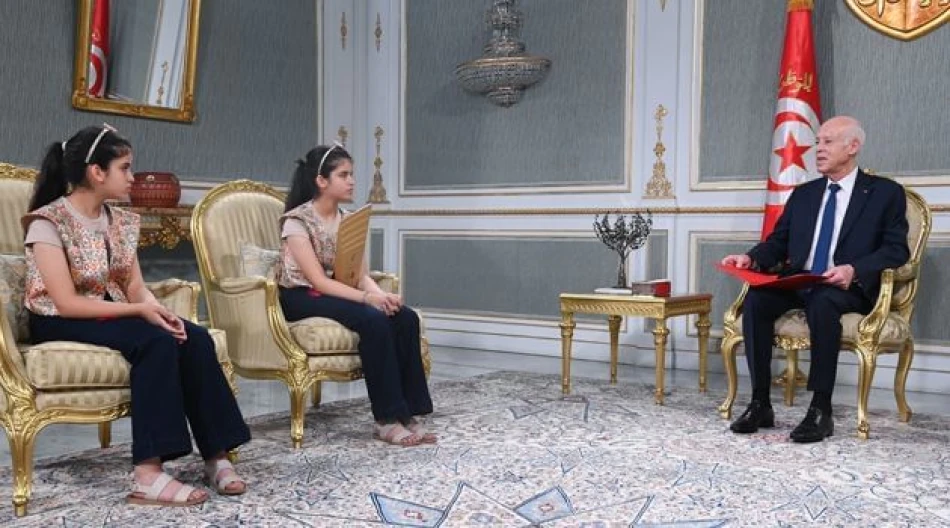
Tunisian President Celebrates Young Reading Champions, Underscoring National Pride
Twin sisters from Tunisia just won the world's largest Arabic reading competition, beating over 32 million students from across the Arab world. Bisan and Bilsan Koka took home the top prize at the Arab Reading Challenge 2025, earning half a million dirhams and a hero's welcome from Tunisia's president.
President Kais Saied received the 12-year-old twins at the presidential palace in Carthage yesterday, calling them "ambassadors for Tunisia" after their victory in Dubai. The president praised how their eloquent Arabic speeches impressed audiences worldwide, noting that despite their young age, they showed remarkable depth of thought and fluency in classical Arabic.
The competition has grown massively since its launch in 2015 by Dubai's ruler Sheikh Mohammed bin Rashid Al Maktoum. This year's edition saw participation from 132,112 schools under the supervision of 161,004 teachers and supervisors. That's a 795% increase from the first competition, which attracted 3.6 million students.
The twins arrived at Tunis-Carthage International Airport to a warm reception from family, education ministry officials, and cultural figures. Their win represents more than just academic achievement - it highlights Tunisia's commitment to Arabic literacy and cultural preservation at a time when many worry about the language's future among young people.
Other winners included Mohammed Jasim Ibrahim from Bahrain in second place (100,000 dirhams) and Maryam Mohammed Shamikh from Mauritania in third (70,000 dirhams). The competition also recognized outstanding supervisors and schools, with prizes reaching up to 500,000 dirhams for top-performing institutions.
The challenge includes special categories for students with disabilities and Arab diaspora communities. Maria Hassan Ajeel from Iraq won the special needs category, while Jihad Mohammed Hussein from Italy took first place in the diaspora division.
Since 2015, the competition has attracted over 163 million student participants across nine editions, with more than 927,000 school participations and 877,000 supervisors involved. The initiative aims to strengthen Arabic reading skills, improve comprehension, and encourage young Arabs to embrace their language in daily life.
For Tunisia, the twins' victory comes at a significant time. The country has been working to maintain educational standards while dealing with economic challenges. Their success on the international stage provides a positive narrative about Tunisian education and the country's cultural contributions to the Arab world.
The competition serves broader goals beyond just reading. It exposes students to different cultures and values, promoting tolerance and cross-cultural dialogue. This matters especially now, as the Arab world grapples with political divisions and seeks common ground through shared language and heritage.
Most Viewed News

 Sara Khaled
Sara Khaled






